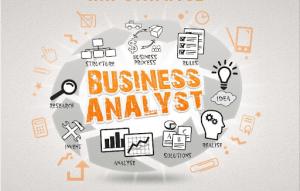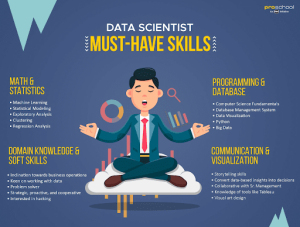Exciting Career Opportunities to Explore with a Degree in Business Analytics

Imagine you’re a detective, tasked with solving a mystery. You have a pile of clues and evidence in front of you, but you don’t know how to make sense of it all. That’s where business analytics comes in. Wondering how? Well, with a degree in this field, you’ll be the Sherlock Holmes of the business world, using data and analysis to uncover patterns and insights that will help organisations make smarter decisions. Whether you want to work in finance, marketing, or operations, a degree in business analytics will equip you with the tools you need to solve even the most complex puzzles and drive real results for your company. If this interests you, put on your detective hat and get ready to discover a new world with us!
Why Business Analytics?
Think of it like a treasure hunt. Businesses have a lot of data, but they don’t always know how to find the valuable insights hidden within them. That’s where business analytics comes in. It’s like having a map and a compass that can help you navigate through all the data and find the treasure.
Now, why is business analytics important? Well, in today’s world, businesses are collecting more data than ever before. From website traffic to social media engagement to customer demographics, there’s a lot of information to sift through. But without someone to analyse that data and turn it into actionable insights, it’s just a bunch of numbers and charts. By using advanced tools and techniques, business analysts can identify trends, predict future outcomes, and help businesses make better decisions. In today’s economy, businesses must be able to quickly adapt to changing market conditions, customer preferences, and emerging technologies. Business analytics is a crucial tool for achieving this agility and staying competitive in the marketplace.
Whether you’re a natural problem-solver, a data enthusiast or just someone who loves puzzles, a career in business analytics can be an exciting and rewarding path. Don’t worry about the scope because according to the Bureau of Labor Statistics (BLS), employment of management analysts (which includes business analysts) is projected to grow 11% from 2021 to 2031, much faster than the average for all occupations. According to Payscale, the average salary for a business analyst in India is around INR 6,00,000 per year, with entry-level analysts earning around INR 3,00,000 per year and experienced analysts earning up to INR 15,00,000 per year. So, what are you waiting for? Let’s dive right in and see your career options!
Here Are Some Exciting Career Opportunities in Business Analytics
Whether you want to work in finance, marketing, or operations, a degree in business analytics will equip you with the tools you need to solve even the most complex puzzles and drive real results for your company. Here are some exciting career opportunities in Business Analytics.
1. Business Analyst: First off, as a business analyst, you get to help organisations make important decisions. That’s right, you’re like the superhero of the business world! You get to use your analytical skills to examine business processes and identify areas where things could be improved. You might even get to come up with some pretty sweet solutions to help the company run smoother. But wait, there’s more! To become a business analyst, you’ll typically need a degree in a related field, such as business, finance, or information technology. Now, I know school isn’t always the most fun thing, but think about it this way: you’re getting a degree that will set you up for a fun and rewarding career. And that’s pretty awesome.
2. Data Analyst: You get to collect, analyse, and interpret large sets of data to help organisations make informed decisions. You might be working with data from all sorts of sources, such as sales figures, customer demographics, website traffic, or social media metrics. And when you’re done analysing all that data, you get to share your findings with others and help shape the direction of the organisation. They also help develop and maintain data systems and tools. To become a data analyst, you’ll typically need a degree in a related field, such as statistics, computer science, or information technology.
3. Data Scientist: A data scientist uses statistical and machine learning techniques to analyse data and develop predictive models. They also design and implement experiments to test hypotheses and identify patterns in data. You might even get to work with cutting-edge technology like artificial intelligence or machine learning, which is always exciting. To become a data scientist, you’ll typically need a degree in a related field, such as computer science, statistics, or mathematics.
4. Business Intelligence Analyst: As a business intelligence analyst, you get to help organisations make strategic decisions by collecting, analysing, and interpreting data from a variety of sources. But what makes this job unique is that you get to work with a wide range of data, including financial data, customer data, and operational data. But that’s not all! You also get to design and develop data visualisations and dashboards to help stakeholders understand complex data. That means you get to flex your creative muscles and come up with innovative ways to present data in a way that is easy to understand and actionable. To become a business intelligence analyst, you’ll typically need a degree in a related field, such as computer science, mathematics, or business administration.
5. Marketing Analyst: A marketing analyst helps organisations understand consumer behaviour and preferences by analysing customer data. They also develop and implement marketing strategies based on their analysis. That means you get to be a part of the creative process, coming up with innovative marketing campaigns that are based on data and insights. You’ll need to be able to identify key trends and insights in this data to help organisations make informed decisions about their marketing strategy. To become a marketing analyst, you’ll typically need a degree in a related field, such as marketing, business, or statistics.
6. Supply Chain Analyst: If you love problem-solving and have an eye for detail, a career as a supply chain analyst might be right up your alley. A supply chain analyst helps organisations optimise their supply chain operations by analysing data on inventory levels, production schedules, and transportation logistics. You’ll need to be able to identify bottlenecks and inefficiencies in the supply chain and recommend solutions that improve the overall efficiency of the operation. While there isn’t a single degree that’s required, most supply chain analysts have a degree in a related field such as operations management, logistics, or supply chain management.
7. Risk Analyst: Do you enjoy foreseeing potential issues before they arise? If so, being a risk analyst might be the perfect fit for you. By examining data on potential threats and weaknesses, a risk analyst assists organisations in identifying and managing risks. They also create plans to reduce hazards and guarantee adherence to legal standards. Although no specific degree is needed, the majority of risk analysts have a degree in a relevant subject like business administration, finance, or accounting.
8. Operations Analyst: An operations analyst helps organisations improve their operational efficiency by analysing data on productivity, resource allocation, and workflow. To be successful in this role, you’ll need to have a strong analytical mind and be comfortable working with data. They also recommend process improvements and monitor their effectiveness. As for the degree required to become an operations analyst, there isn’t a single degree path that’s required. Many operations analysts have a degree in a related field such as business administration, operations management, or industrial engineering.
These were just some of the options if you are interested in business analytics, pursuing a career in this field offers great potential for professional development and job stability, as well as the opportunity to make a significant impact on an organisation’s success.
Open A World of Possibilities For Yourself
Pursuing a career in this field can offer tremendous opportunities for professional development and job stability. And if you are confused about where to start or finding out what your true capabilities are then we are here for you.
Mentoria promises to handhold you during your career discovery journey – from the time you sign up until you get into a career you love. If you haven’t done it already, register now and begin with the first step – a career assessment that helps you discover yourself and your ideal career!











